-
•
•
34 responses
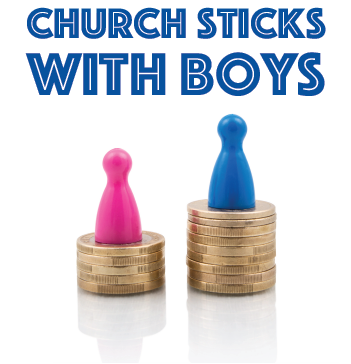
As Dave Banack wrote yesterday, in spite of some public huffing and puffing, the church has decided to continue the relationship with the Boy Scouts of America. They have also decided to continue to seem unaware that the first word in the organization’s title makes it gender-exclusive. With equal concern for the substantial number of youth who live outside the United States and Canada, the Church will continue to evaluate and refine program options that better meet its global needs. The correct wording should be “with equal concern for the substantial number of male youth who live outside the United States and Canada.” The… Read More
-
•
•
25 responses
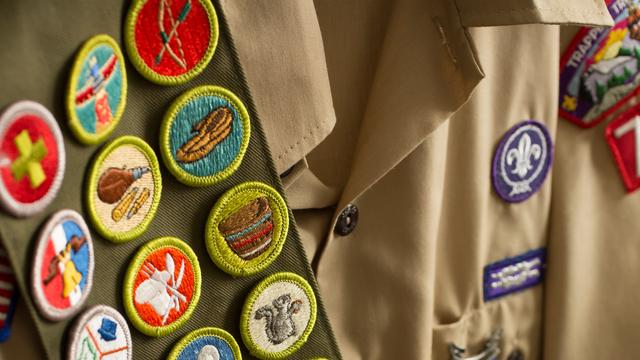
At least for the moment, as announced in this statement posted at the Mormon Newsroom: “Church to Go Forward with Scouting Program.” So despite the sharply worded LDS statement released a month ago at the Newsroom expressing frustration with BSA for the timing and content of the decision to allow gay scout leaders to serve and despite Internet rumors that an LDS-BSA divorce was imminent, this troubled marriage will continue, at least for now. How long will this last given declining support for BSA among the LDS rank and file? And what does this mean for LDS youth and youth… Read More
-
•
•
48 responses
A couple of weeks ago, Patheos had a fun series of blog posts on the future of the Mormonism. (I’m too lazy to provide a link; Google it.) Most of the contributions were insightful and interesting, but I was struck that none of them put front and center what I think is the more important question facing the Church today. Mormonism is driven, ultimately, by missionary work. If you look at the development of our theology, for example, it has largely been formulated in the context of polemics driven by the needs of proselytizing. We articulate our theology through the… Read More
-
•
•
49 responses

Yesterday, President Oscarson announced on her Facebook page that she was now assigned to be a member of the Missionary Executive Council. President Burton is now a member of the Priesthood Executive Council (which has been renamed the Priesthood and Family Executive Council) and President Wixom is now on the Temple and Family History Executive Council. In an article in the Deseret News, former General RS Presidency member Sheri Dew said that “This is yet another important step forward in the restoration of the gospel.” Read More
-
•
•
33 responses
-
•
•
24 responses

So a friend of mine is going to shepherd a much-needed project: an index of theological, exegetical, historical, and doctrinal writings by LDS women. Read More
-
•
•
24 responses

You recently got called as a Early Morning Seminary teacher, and feel surprisingly sanguine about it. Then you found out that you’re starting with Old Testament this September, and all of a sudden, your confidence in the face of world-weary, eye-rolling teenagers plummeted. Why is this so tough? The audience is hostile and sleepy. You teach every day, without the luxury of a whole week to think through your 45 minute lesson. You’ve got to get in there every morning to teach about the longest book we know the least, with the hardest material that is also the most foreign, culturally speaking. Not to… Read More
-
•
•
55 responses
A week ago, the Church released a suddenly iconic photograph of Joseph Smith’s favorite seer stone, and also posted at LDS.org an article by three LDS historians, “Joseph the Seer,” to be published in the October 2015 Ensign. It seems clear that the image plus the content of the article are going to rewrite the standard (“official”) LDS narrative concerning Joseph Smith’s translation of the Book of Mormon text. I’m concerned it may also bring folk magic back into that narrative and even back into mainstream LDS culture. That seems like a step in the wrong direction. Read More
-
•
•
14 responses

I recently read the new book Fresh Courage Take: New Directions by Mormon Women (Signature Books, 2015; publisher’s page), edited by Jamie Zvirdin with a foreward by Joanna Brooks. Twelve enlightening essays reflecting the plight, fight, and delight of being a Mormon woman circa 2015. You might ask: Not being a Mormon woman myself, who am I to write a review of this book? I know at least a few Mormon women rather well (mother, wife, daughter). Also, I have read lots of blog and Facebook posts by articulate Mormon women sounding some of the same themes and experiences, albeit… Read More
-
•
•
22 responses
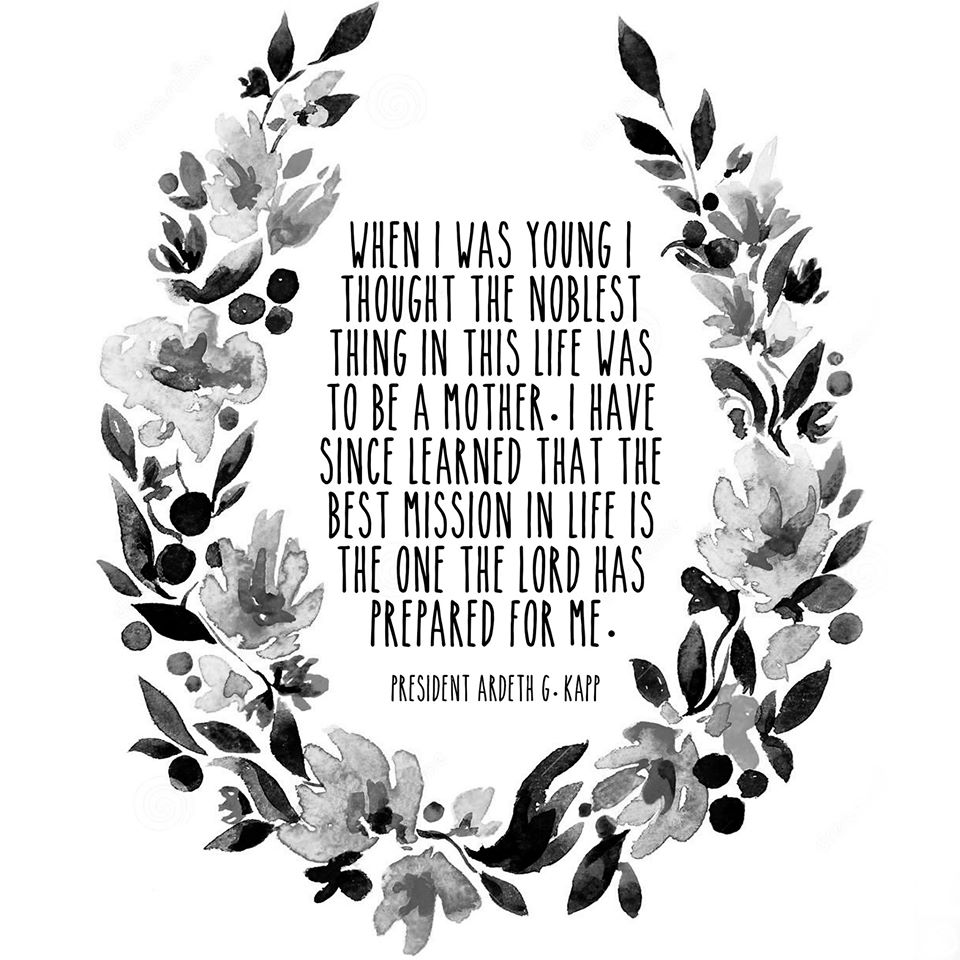
The first line of this lesson reads, “To prepare to be a righteous wife and mother, young women should focus on the Savior and on developing Christlike attributes,” so that’s what I decided to focus the lesson on. Read More
-
•
•
65 responses

I’ll be honest. Seerstones spark a fire in my bones, a connection to an earlier, earthier, more tangible, and sacral-infused Mormonism. And that’s a Mormonism I need in my life right now. Read More
-
•
•
21 responses
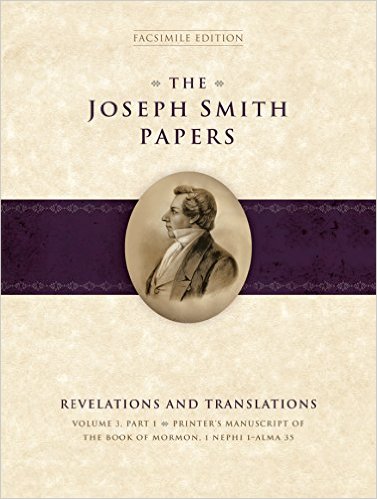
Yesterday by invitation, I attended the first known joint press conference between the LDS Church and its cousin, the Community of Christ (formerly known as the Reorganized Church of Jesus Christ of Latter-day Saints Reorganized Church of Jesus Christ of Latter Day Saints, or RLDS.) The occasion was the release of the 2-part 3rd volume in the Revelations and Translations series of the Joseph Smith Papers, the Printer’s Manuscript of the Book of the Mormon. As with the others, these books are hefty, high-quality, and thought-provoking. While available at Amazon (part 1, part 2), they will also be available in their entirety online soon. Read More
-
•
•
The Society for Mormon Philosophy and Theology will be meeting at Brigham Young University, October 8-10, 2015. This year’s conference theme is “Doers of the Word: Belief and Practice.” From the Call for Papers: The Society for Mormon Philosophy and Theology invites paper proposals on any aspect of Mormon belief, including its philosophical ramifications. We particularly encourage submissions on this year’s theme. Religious faith is not merely a matter of belief but of action. Indeed, several passages in scripture suggest that true belief cannot be separated from action. In John 7:17, for instance, Jesus indicates that the practice of faith… Read More
-
•
•
122 responses
Yesterday my Facebook feed erupted with posts by LDS friends expressing dismay over the Church’s announcement that it would reconsider its relationship with the BSA in light of the BSA’s announcement that it would now allow gay scoutmasters. After all, the BSA policy allows local troops to set their own guidelines regarding gay scoutmasters, and in any case the Church has no objection to gay scoutmasters, so long as they are living the law of chastity. Why the sharp response from the Church? I have a theory about, this, but it is only a theory. In 2000, the U.S. Supreme… Read More
-
•
•
46 responses
Mormons are talking about Scouting this week as the first significant aftershock of Obergefell v. Hodges rips through the LDS Church. It started with the July 27 announcement by the Boy Scouts of America (BSA) that its “National Executive Board ratified a resolution that removes the national restriction on openly gay adult leaders and employees.” The BSA statement announcing the decision included this paragraph explaining that local units can still set their own guidelines for selecting adult leaders: Chartered organizations will continue to select their adult leaders and religious chartered organizations may continue to use religious beliefs as criteria for… Read More
-
•
•
37 responses

Far and away, when I am in a small group and decisions need to be made, most people would prefer that someone else make them. There are notable, and loud, exceptions. Four year olds, for example, very much want to make decisions. But for most adults, I’ve found that the majority typically prefer that someone else ponied up and decided where we go to eat or in what order things will occur.[1] This is because, one presumes, they are not so concerned about the exact decision making them happy. They are generally willing to go along with most reasonable things. Let… Read More
-
•
•
One response
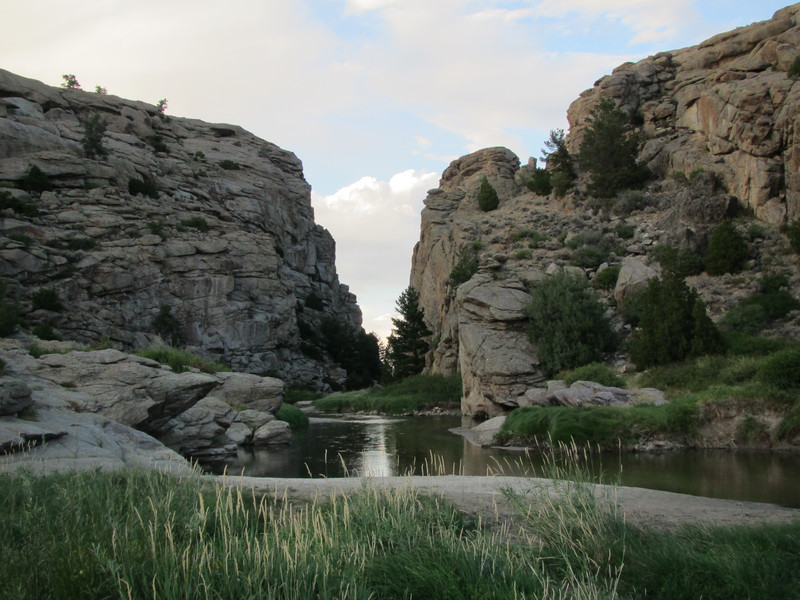
On a recent corner-to-corner drive across the state of Wyoming, I paralleled the Mormon Trail for about 200 miles: from where the trail intersects I-25 (about 80 miles north of Cheyenne), through Casper (site of the first Mormon ferry), along Wyoming 220 past Independence Rock, Devil’s Gate, and Martin’s Cove, then up US 287 past Split Rock to the Sixth Crossing of the Sweetwater River. I’ve never been much for pioneer tales, but I enjoyed taking in the landscape that was the common experience of the first twenty thousand Mormons who made the overland trek to Utah. Read More
-
•
•
Participants in the 2015 Summer Symposium on Mormon Culture will be presenting research papers this Thursday, July 23rd, on the seminar theme, “Organizing the Kingdom: Priesthood, Church Government, and the Forms of LDS Worship.” The symposium will run from 10am to 5pm in Room B094 of the Joseph F. Smith Building. The full program is posted on the Maxwell Institute Blog. Read More
-
•
•
20 responses
If you are in Provo on July 31st: Read More
-
•
•
60 responses
From the Salt Lake Tribune, a variety of reflections on the upcoming selection of two new apostles for the LDS Quorum of the Twelve. Many of those quoted in the article favor a pick that would advance ethnic or international or gender diversity. No one made the obvious prediction: a married white male from Utah with a law degree. Read More
-
•
•
70 responses
For the second week, LDS wards and branches in the USA and Canada were presented with the Letter over the signature of the First Presidency, the Statement over the title of the Council of the First Presidency and the Quorum of the Twelve Apostles of the Church of Jesus Christ of Latter-day Saints, and the unsigned background material in Q&A form accompanying the Letter. These have all been officially published at the Mormon Newsroom. Social media continues to report a variety of reactions at the local level: some bishops simply read the Statement with no discussion, others conducted a Q&A… Read More
-
•
•
51 responses
I like and respect Jana Riess a great deal, but she has a blog post up on religious freedom in which she makes a number of mistaken claims that are worth pointing out. First, she suggests that the Church´s commitment to religious freedom is shallow or poorly thought out. After all, she says, wouldn´t a robust support for religious freedom include minority religions such Rastafarians? Yes it would. However, since 1990 at least the Church has vigorously supported legislation that allows Rastafarians and other minority religions to challenge laws burdening their practices. The Religious Freedom Restoration Act, which the Church… Read More
-
•
•
One response
Participants in the Wheatley Seminar on “Mormon Theology and Social Issues” are presenting papers in the Harold B. Lee Library Auditorium at BYU on Thursday, July 9th. See the schedule below. SECOND ANNUAL WHEATLEY SEMINAR SYMPOSIUM FAITH SEEKING UNDERSTANDING “MORMON THEOLOGY AND SOCIAL ISSUES” 10:00 Brock Mason, “Marriage and Sexuality: A Mormon View” 10:30 Kim Berkey, “’As in Adam all Die’: Temple Robing and Dying in Mormon Thought” 11:00 Joe Spencer, “The Moral Stakes of Philosophy’s History” 11:30 Alan Clark, “Inheriting the Enlightenment” 12:00 LUNCH BREAK 1:30 Jonathan England/Spencer Green, “Communal Environmentalism” 2:15 Randy Powell, “Capital Punishment: A Mormon Theological… Read More
-
•
•
6 responses
Given that my studies have involved the interpretation of Genesis, science, and evolution, Elder Packer and I have not always seen eye to eye. I remember well on my mission when Time Magazine ran the cover article about Mormon finances. This made it all the way to France, where we had a copy, and my companion Elder West really focused in on their description of Elder Packer as “the LDS Church’s hard-line number 3 man.” And indeed, he had and has that reputation. But around 2007, while I was teaching volunteer Institute in Urbana IL, we attended a CES fireside for CES teachers,… Read More
-
•
•
21 responses

The supreme court has decided, so now in all of the USA same sex marriages are legal. With this landmark decision the USA has joined the many nations in the world where such a union has become official, and from the Netherlands, the first country where these marriages became official, we extend a warm welcome to America. Great that you joined the swelling crowd who thinks that LGTB should not be discriminated against, also not in marriage issues. You are becoming a ‘modern nation’ now (I hope you recognize a European ‘tongue-in-cheek’). In an earlier blog I explained how preciously… Read More
-
•
•
95 responses
The Mormon Newsroom has posted a letter from the First Presidency to area and local leaders. This is unusual: generally letters from the First Presidency are read to members over the pulpit in sacrament meeting, where you hear it once (if you’re lucky) but do not get access to the written text for study or review. And the first line of the letter makes it quite clear what prompted the letter: “Enclosed is a statement by the Council of the First Presidency and Quorum of the Twelve in response to the recent Supreme Court decision legalizing same-sex marriage in the… Read More
-
•
•
65 responses
I could have called this post “Same-sex marriage: The Belgian perspective,” but it includes more. “The perversity of orthodoxy” – that’s how one of the members in our Belgian ward identified the broader issues which triggered this post. He called me on Sunday afternoon, upset by a Sacrament meeting talk that same morning and in need to vent frustration. Perhaps “perversity” was too strong a word. Maybe “perfidy”? Probably too weighty a word, too. At least “the insensitivity of some who defend orthodoxy” or “the indelicacy of some church statements in the US in relation to the international church”? Difficult… Read More
-
•
•
11 responses
So here’s the plan: each week that the gospels are covered in Sunday School, I will post one question from my book along with a brief discussion of the issues that it raises. Most ancient manuscripts of Mark end after 16:8 and early Christians do not seem to know any of this chapter after verse 8. The style, vocabulary, and themes in Mark 16:9–20 are quite different from the rest of Mark. Therefore, the vast majority of scholars believe that the Gospel of Mark originally ended with verse 8 and that verses 9–20 are a later addition by another author. It… Read More
-
•
•
66 responses
Today our government has taken another step toward moral upheaval, or, if we think more optimistically, toward a crisis that will reshape it and its relationship toward the people it governs, potentially in a constructive manner. The government of the United States of America presents itself, in Lincoln’s immortal words, as a government of the people, by the people, and for the people. Its premise is that the legitimacy of government depends on the consent, and not merely the passive, but the active consent, participation, and support of the governed. Today’s Supreme Court ruling mandating same-sex marriage across the Union… Read More
-
•
•
14 responses

I wrote recently that there’s no reason why God, who spoke to ancient Israelites “in their weakness, after the manner of their language” could not adapt familiar myths so “that they might come to understanding” (D&C 1:24.) Here, I cite that prophet-with-a-small-p “Elder” C.S. Lewis, who argues that inspiration can include adaptation of uninspired sources. Read More

